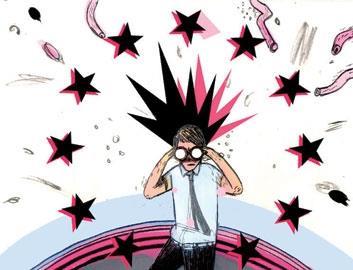In 2010 Europe will emerge from the shadows of low-performance lightbulbs and enter the age of energy-efficient lighting …
Europe’s energy ministers met in Luxembourg recently to consider the EU directives on energy labelling and eco-devised energy products. The upshot was that they called for a ban on the sale of low-performance lighting products from 2010. However, they conceded that such a ban should only be enforced once substitutes existed and once there was sufficient supply to avoid disruption to the workings of the internal market or to end-users.
EU ministers are putting pressure on the European Commission to present a draft proposal by the end of 2008 that would effectively phase out all electric filament lamps as well as any other types of low performance lamps.
Energy-efficient light bulbs and lamps consume less than 75% of the energy of traditional ones, which is why energy-efficient lighting was one of the top priority action points of the Energy Efficiency Action plan of 2006. This set an overall 20% energy efficiency target by 2020.
Against this background, European bulb makers pledged to phase out low-performance bulbs in Europe by 2015 in June 2007. Industry estimates speak of a carbon footprint reduction of 23 million tonnes and nearly £5.5bn electricity savings in the domestic lighting sector alone. Unlike most other products, a lightbulb’s environmental impact is caused not so much during its production, transport and disposal but in its use phase. Apart from the energy saving aspect, fluorescent light bulbs also last 10 times longer.
Australia became the first country to put a ban on traditional light bulbs in February 2007. Canada followed two months later. So where does that leave the EU?
Australia became the first country to put a ban on traditional light bulbs in February 2007. Energy inefficient bulbs will be phased out by 2010 to be replaced with the more fuel efficient fluorescent models. Canada followed the Australian example two months later. So where does that leave the EU?
Responding to the European council’s call for action, Andris Piebalgs, the energy commissioner, confirmed that his directorate would come up with a proposal for a ban in December alongside a plan for the increased energy efficiency of boilers, heaters and fridges. As part of the EU’s work on energy security, more than 20 product categories are expected to be subjected to new specifications over a period of three years.
To further boost synergies between existing EU directives, the adoption of revisions to the directives on eco-design and energy labelling could be on the cards before the end of 2009.
Postscript
Ursula Hartenberger is head of public affairs Europe at the RICS




























No comments yet